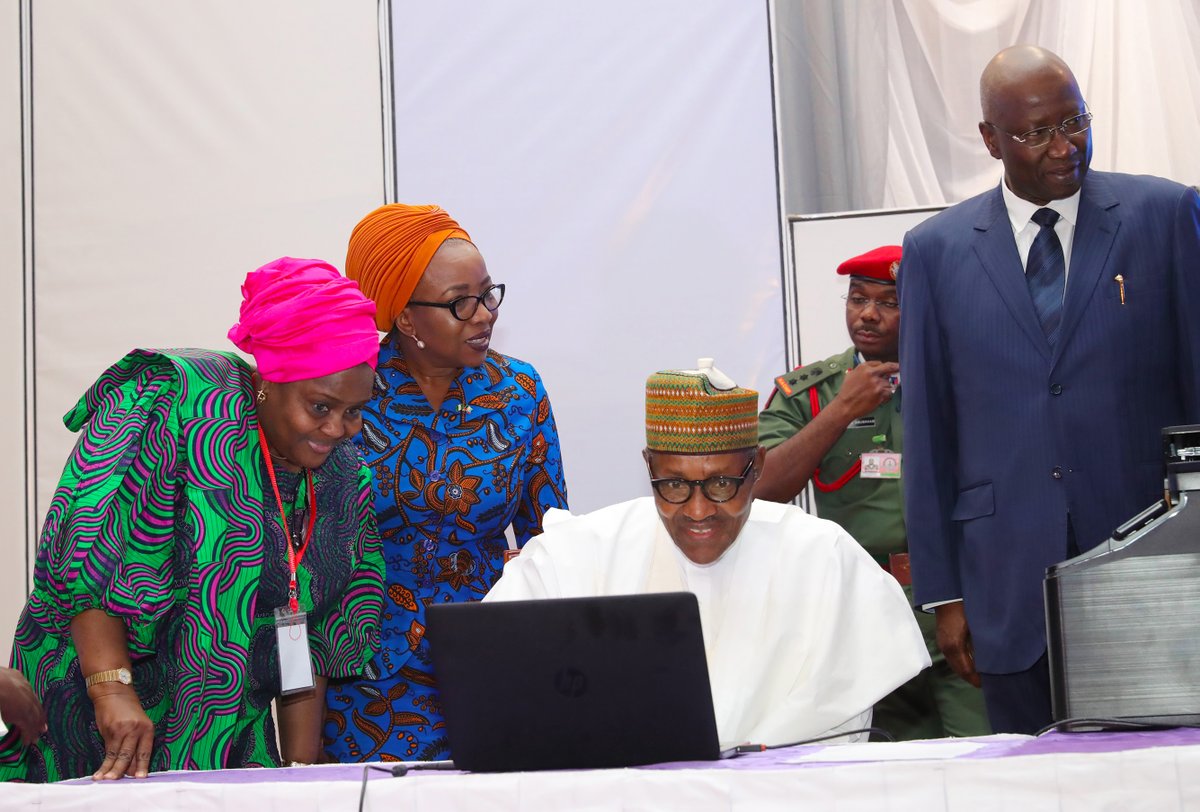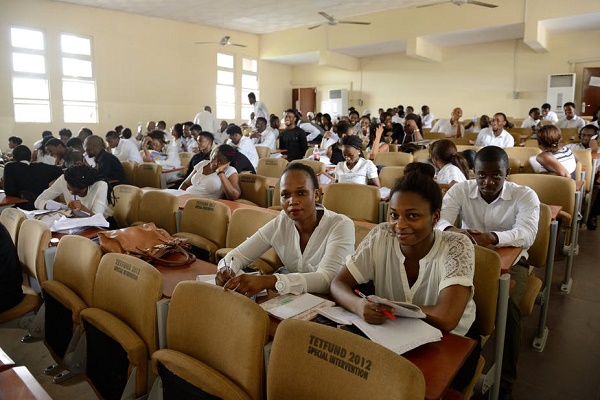In my upcoming debut book, ‘Fellow Nigerians, It’s All Politics’, which will go on sale in October 2022 (you heard it here first), you will find a familiar thread in my contributions to the debate on the Nigerian project over the past two decades: that the progress of the country is hardly at the heart of leadership. Although the most common template for the diagnosis of Nigeria’s problems and challenges today popularly centres solely on the 1999 Constitution and the president, I have often tried to point attention to the roles of the three levels of government — federal, state and local — as well as the place of politicians, policy makers and civil servants in the underdevelopment of Nigeria.
For some reason, we often downplay the role of civil servants and public officers in our underdevelopment. Not that we do not discuss it at all, but we tend to gloss over it. The absolute truth, though, is that if public servants do their job diligently and patriotically, the system will run far better than it currently does and Nigeria will be a much better society. There will be proper policy thinking and policy making. There will be proper implementation of policies. There will be strong institutional resistance to the selfish manipulation of policies. However, it seems intrigues for self-seeking purposes drive too many government actions and decisions. And so, we are where we are.
Recently, President Muhammadu Buhari was misled, I would say, into approving a recommendation that may end up harming the pension reform initiated by the Obasanjo administration in 2004. The reform has been a success story so far, at least at the federal level and in the private sector. We used to have only the “defined benefits” scheme — whereby employers bore the entire pension burden, with accumulated arrears sending retirees to an early grave. The introduction of the “contributory pension scheme” has created another economy, enabling a new culture of saving towards retirement by employees and employers. It saves us the headaches of budgeting and “cash backing”.
However, as we love to do things in Nigeria, some senior civil servants have been working hard to undermine the Pension Reform Act (PRA) 2014. In February 2015, the head of the civil service of the federation and permanent secretaries sought to be excluded from pension regulation under section 6(2) of the act by the National Pension Commission (PenCom). Their argument was that they are “political appointees” and not “employees” of the federal government. The implication: unlike other civil servants, they would be excluded from the contributory scheme. Instead, they would be placed on “salaries for life”, with the government bearing the full burden as it was before the reform.
Advertisement
The attorney-general of the federation, in his legal advice to the head of service in March 2015, referred to a number of laws. One, section 173(1) of the constitution requires that the right to earn pension and gratuity in public service shall be regulated by law. Two, Certain Political Public Holders Act 2002 says benefits shall be paid to only those enumerated in the law based on the scheme of service. Three, Rule 020810 of the Public Service Rules 2008 stipulates the compulsory retirement age of all pensionable officers in the public service. The AGF concluded that the “political appointees” referred to in section 6(2) of the pension law are those entitled to retirement benefits.
In simple logic, even though the head of service and permanent secretaries may want to consider themselves as “political appointees”, they are bound by law to retire at the age of 60 or after having been in service for 35 years, and are therefore within the ambit of those whose retirement benefits should be under the regulation of PenCom. While the regulator cannot prescribe the quantum of the benefits of the senior civil servants since the law is clear on that, it is allowed to establish a uniform set of rules, regulations and standards for the administration and payment of the retirement benefits. After the attorney-general’s opinion, PenCom rolled out the guidelines in 2015.
The head of service and perm secs were asked to open retirement savings accounts (RSAs) and make pension contributions like the rest of us. Also, since their benefits are already defined by law — guaranteeing that government would pay them 100 per cent of their terminal benefits as pension upon retirement — PenCom said the federal government, as the employer, is statutorily obligated to pay the shortfall in case the RSA savings do not cover the 100 per cent. In other words, they were not going to lose one kobo of their entitlements. The temporary gap, in the absence of budgetary allocation, was to be covered by the Pension Transitional Arrangement Directorate (PTAD).
Advertisement
However, the politicking continued into the Buhari administration. There was a “breakthrough” in 2019 when the new attorney-general countered the previous legal opinion, declaring that the head of service and perm secs are not “employees” but “appointees” of the president and that they should not be subjected to the contributory scheme as stipulated in PenCom guidelines. The ministry of finance then directed that retired heads of service and perm secs should be placed on “salaries for life” via the integrated payroll and personnel information system (IPPIS) platform. By the way, IPPIS is for active workers, not retirees. Pensions and salaries are not the same thing, legally speaking.
It did not take long for a letter to land on Buhari’s desk seeking approval to exclude the head of service and perm secs from the contributory pension scheme and place their entire retirement burden on the government. Buhari approved. It appears the senior civil servants, having reached the peak of their careers, believe they should be treated like former heads of state who are on salaries for life. But if they are political appointees as they are trying to define it, all they will be entitled to at retirement will be a severance package and not salaries for life. If they want to be treated as civil servants, they cannot exit contributory pension. But they want to have their cake and eat it too.
In my opinion, Buhari did not get good legal advice before issuing the directive — and I don’t have to be a lawyer to know this. One, section 318 of the constitution defines “public service” to cover presidential appointees. Two, sections 2, 3, 4 and 6 of the PRA place all federal public officers — “employees” and “appointees” alike — under the contributory scheme. The only ones expressly exempted are judicial officers, personnel of the armed forces, personnel of the intelligence and security services, and employees who had three or less years to retire as at June 25 2004 when the scheme was launched. The head of service and perm secs are not listed for exemption anywhere.
I think there are two obvious remedial options before Buhari. One is to withdraw the directive entirely and return the head of service and perm secs to the contributory pension scheme before other government “employees” and “appointees” begin to develop ideas about agitating for “life salaries” too. The second option is for the president to seek an amendment to PRA 2014, Rule 020810 and the 1999 Constitution to expressly exclude the head of service and perm secs from the contributory pension scheme if he so desires. Judicial office holders and elected officers are legally excluded from contributory pension. But a presidential directive can never supersede a law.
Advertisement
It is not just the senior civil servants that are seeking to undermine the pension reform and weaken a watershed policy in our history. The police force has been coming up with all kinds of schemes over the years to exit. They see pension as a billion-dollar industry with plenty idle funds. After a wave of high-level lobbying, the federal government allowed them to set up a pension fund administrator (PFA) in 2013. But they are still subject to regulation by PenCom. To take the funds off the eyes of PenCom, the police are lobbying yet again that they be exempted from the contributory scheme, like the armed forces. However, as I have noted, the armed forces are expressly exempted by law.
There are reports that some retired deputy inspectors general (DIGs) and assistant inspectors general (AIGs) have been enrolled on IPPIS to enjoy “pensions for life”. This was never part of the pension guidelines or the law. It is alleged that some are collecting from both sides — the IPPIS and the police PFA. These are the things that depress you about Nigeria. We do not want the system to work. When revolutionary policies are put in place, our first instinct is how to subvert them. That is when you see us at our best: plotting, scheming, lobbying, campaigning and politicking to punch holes for selfish purposes. We hardly see things from the prism of progress and development.
I can go on and on highlighting the wiles and schemes we instinctively come up with to slow down Nigeria’s progress — just because of what we stand to benefit as individuals. When we try to replicate some things that work excellently elsewhere, we end up with the worse version because of personal interest. With monetisation, for instance, we should never talk about official cars again as such are already built into the payments. But some of the beneficiaries have found a way around it by buying what they call “project cars” from public purse and converting them for both official and personal use. That is double jeopardy for the lean treasury. Pray, who will love this country?
For Nigeria to get out of jail, we must get our politics and policies right. Politics must be played with a single purpose: for the greater good of the society, not personal comfort. Policies must be developed and applied with a single purpose: for the greater good of the society, not personal comfort. No matter what we say or do, no matter who we elect as president, governors and lawmakers, and no matter how many times we amend the constitution, we are headed for nowhere as long as personal interest trumps communal progress in our individual or collective thinking. That is why we play politics with everything — not just in political parties but with pension reform.
Advertisement
AND FOUR OTHER THINGS…
PEACE IN THE MUD
When Alhaji Atiku Abubakar, the PDP presidential candidate, and Governor Nyesom Wike held peace talks in the UK a little over a week ago, the resignation of Dr Iyorchia Ayu as the party chairman was the major item on the agenda. Wike and his allies maintained that Ayu was too “divisive” and “arrogant” to continue as chairman, minus the little detail of the need for geo-political balancing. Atiku promised that they would get a “feedback” within two weeks. With Ayu declaring those asking him to resign as “children” and Wike reminding him that the “children” picked him from the “gutter” and made him chairman, can we safely conclude that this is the awaited “feedback”? Anti-climax.
Advertisement
ORTOM AND PMB
That Governor Samuel Ortom of Benue state is not a fan of President Muhammadu Buhari is universally known. He recently alleged that Buhari had directed security agencies to go easy with the “criminal herders”. Presidency fired back, describing it as “cheap, dog whistle politics”. But please help me understand something. The same Ortom, in a keynote address at annual convention of the Idoma Association USA in August 2019, said: “As of today, we have convicted 81 herdsmen. Some have paid fines; others are still in prison as I talk to you.” In Ondo state, several “herders” have been sentenced to life imprisonment and death. Buhari has not raised an eyebrow. Bewildering.
Advertisement
THE ASUU ISSUE
It is now over 200 days that the Academic Staff Union of Universities (ASUU) has been on strike. Federal government had insisted that university workers be enrolled on the integrated payroll and personnel information system (IPPIS) apparently to weed out ghost workers. ASUU is asking for better funding for the universities, in addition to full autonomy — that is, government should pump in more money but not ask questions about how it is spent. Sadly, it is our children that are suffering the devastating and irreversible consequences of this perennial face-off. One administration after the other, one ASUU president after the other, it is strike at the slightest provocation. Frustrating.
Advertisement
GOODBYE GORBACHEV
I grew up disliking Mikhail Gorbachev, the former Soviet leader who died at 91 on Wednesday. I believed he and other world powers were aiding and abetting apartheid in South Africa. Ras Kimono, the late reggae singer, reinforced my hostile disposition with his song, ‘Kill Apartheid’, in which he listed Gorbachev and his contemporaries — Ronald Reagan (US), Margaret Thatcher (UK) and Pieter Botha (South Africa) — as the enablers of racial segregation. Gorbachev was the leader of the Eastern bloc in the Cold War against the West. Well, his policies of Perestroika and Glasnost led to the disintegration of Soviet Union and the fall of communism. They fell in love with him. Interests.
Add a comment







